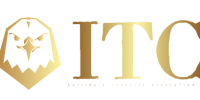Personal business is the term used to describe the tasks or activities that are performed by a company, a person, or one on their own. Examples include managing finances, doing household chores, or making appointments. It could also refer to the creation and management of a business that is based on the skills or interests, as a sole www.bizinfoportal.co.uk/2021/04/23/business-development-strategy-creating-long-term-value/ proprietor.
Although data privacy laws vary from country to country and state to state, they all have similar definitions of what is considered to be personal information. The CCPA and Connecticut’s law for example, describe personal data as any information that is reasonably capable of being linked to an identifiable person and is not restricted to de-identified data or information that is publicly accessible. The CCPA also provides a category for sensitive personal information that requires greater protection than any other form of data.
It’s important to understand how much data is kept in your organization and where it’s located. This can be done by taking a complete inventory on all documents, files, and storage devices. This should include every desktop, file cabinet, laptops, mobile devices as well as flash drives, disks and digital copiers. Be sure to check places where sensitive data may be stored outside of your office. This includes employees’ homes and their work-from home computers.
PII that is sensitive should be encrypted both in transit and at rest and only for as long as is necessary for business purposes. This includes biometrics, medical information included in the Health Insurance Accountability and Portability Act(HIPAA), unique identification numbers such as passports or Social Security Numbers and employee personnel records.

